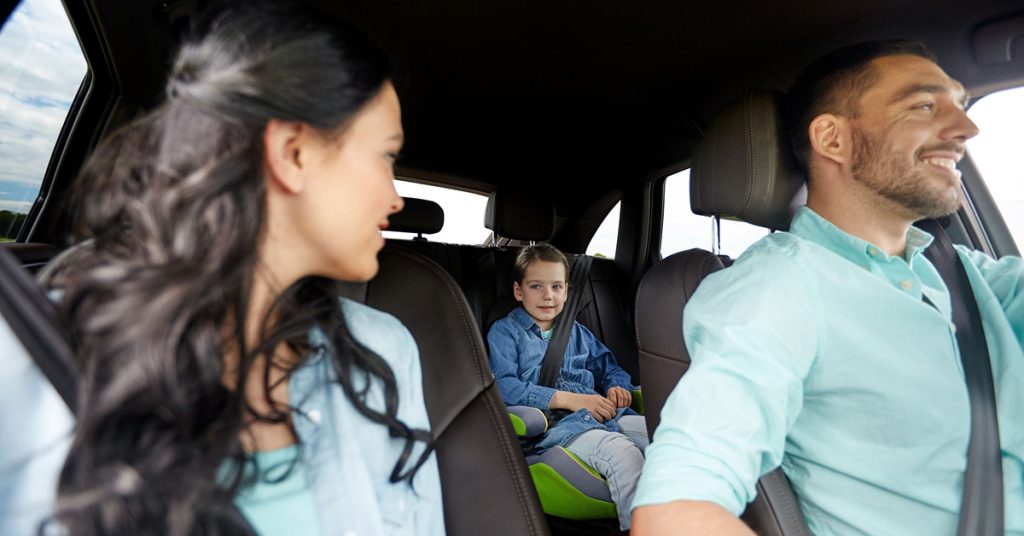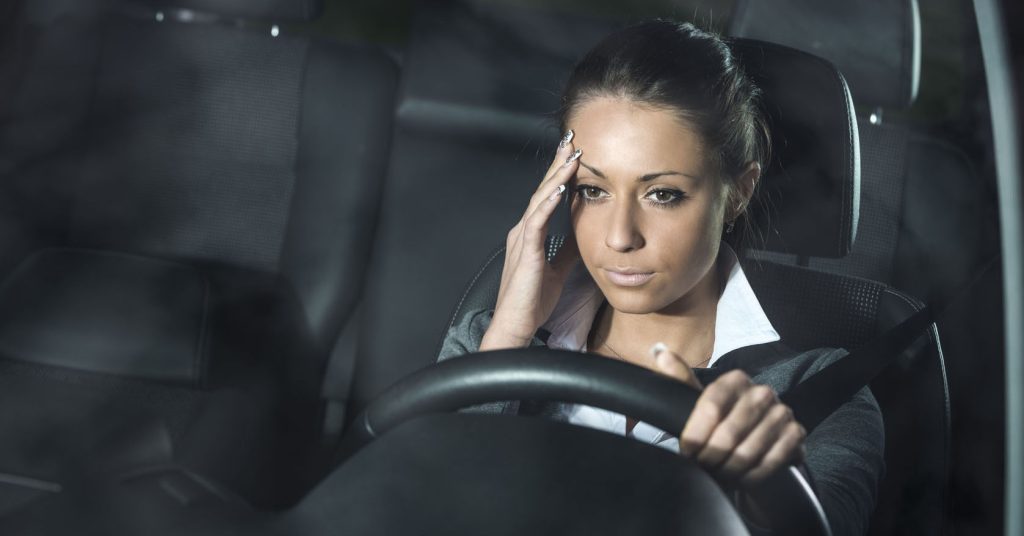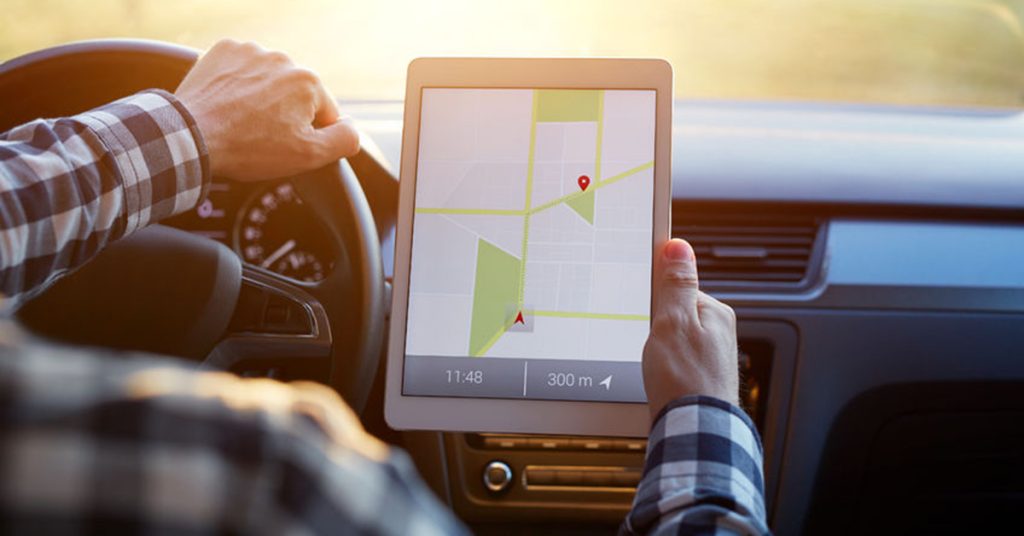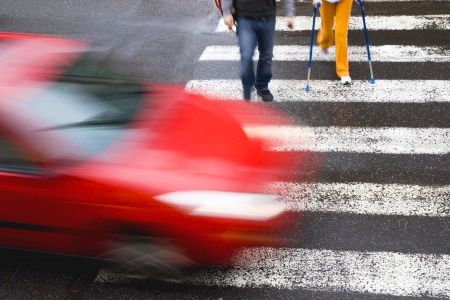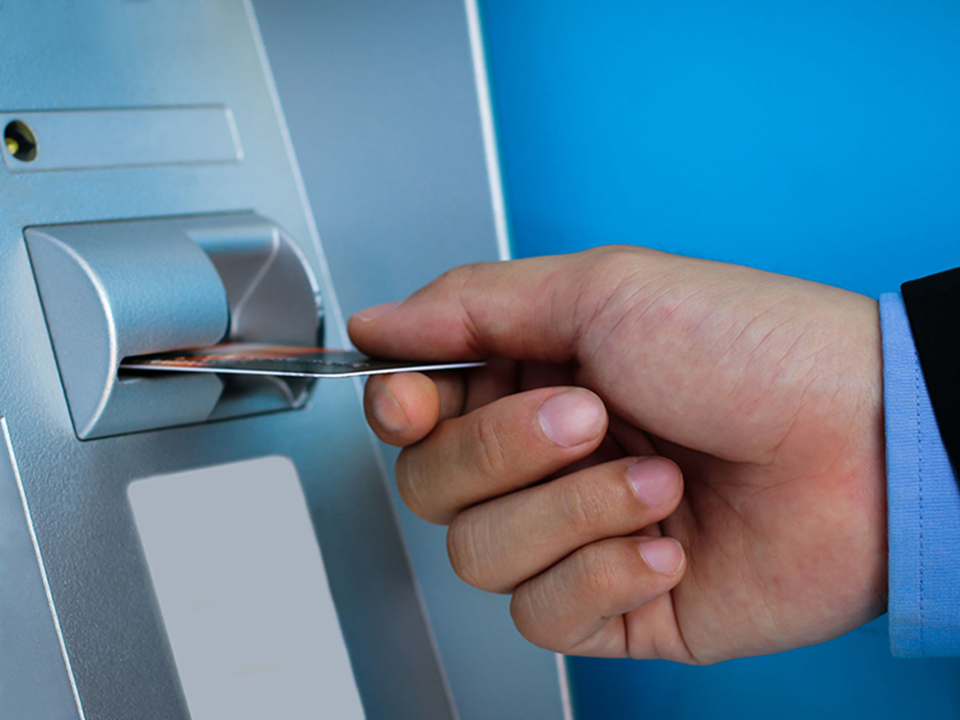Posts Tagged ‘Boston’
Attorney Reza Breakstone: “The Self Driving Car: Science Fiction Becomes Reality, Creating a Legal Quandary”

Attorney Reza Breakstone of Breakstone, White & Gluck in Boston.
A self-driving Uber vehicle has been involved in a fatal pedestrian crash in Arizona. Attorney Reza Breakstone’s article explores liability when self-driving cars crash: https://tinyurl.com/y8qrfs69.
Preventing Injuries: Check Your Seat Belts and Child Passenger Safety Seats
 There is nothing more important than protecting your family and other passengers in the car. Many of us drive less often in the winter in Massachusetts. But in a few weeks, families will be back in the car more for afterschool sports, activities and weekend trips.
There is nothing more important than protecting your family and other passengers in the car. Many of us drive less often in the winter in Massachusetts. But in a few weeks, families will be back in the car more for afterschool sports, activities and weekend trips.
Take a few minutes now to inspect your vehicle’s seat belts and child passenger safety seats. Make sure this equipment is working and properly adjusted to fit each child. Replace car seats if your children have outgrown them. Then talk to your family about the importance of always wearing a seat belt.
Dangers on the Road for Children
- Roughly 3 children in the U.S. die each day as a result of motor vehicle accidents, according to the National Highway Traffic Safety Administration (NHTSA).
- Car accidents increased 5.6 percent nationwide from 2015 and 2016. Child deaths in motor vehicle accidents increased 8 percent.
- Children were occupants in 74 percent of fatal car accidents in 2016. They were pedestrians in 20 percent of cases and were on bikes in about 5 percent of cases.
Seat Belt: Buckle Up, Every Ride
Your car should have working seat belts. Do a visual inspection and also sit in each seat while buckling up. If your seat belts are not working, call your auto dealer to have them repaired. Then, wear your seat belt on every trip, no matter how short. Insist your children and other passengers do as well. Drivers carry a lot of influence when it comes to seat belt use, especially parents.
Properly buckle your children in, especially when they are just transitioning from booster seats to seat belts. As they get older, they will start to buckle themselves in, but continue to check their seat belt before you start driving, even if just from the front seat. You want to make sure the straps are not tangled or jamming. Buckle up unused seat belts to discourage children from playing with them. Always lock your power windows so children cannot operate them from the backseat and finally, never leave your children alone in motor vehicles to play with seat belts unsupervised in your vehicle.
Watch this video to see how to buckle your child in:
Teenagers may need the most reminders, whether they are passengers or drivers. In 2016, 47 percent of young drivers who died in crashes were not wearing seat belts, according to the NHTSA. As a parent, you have to teach your teenager to be both a safe driver and a safe passenger and always, always wear seat belts. The decisions your children make while driving with friends are critical.
Massachusetts Law on Seat Belts
In Massachusetts, children must start wearing seat belts at age 8 or when they outgrow their child passenger safety seat.
The Massachusetts seat belt law requires drivers and passengers to wear seat belts while traveling in the front and back of vehicles. According to the Governors Highway Safety Association (GHSA), Massachusetts is one of 15 states which have a secondary enforcement seat belt law. While seat belts must be worn, drivers can only be cited for a seat belt violation after they are stopped for an unrelated traffic offenses. In primary enforcement states, drivers can be pulled over solely for not wearing a seat belt.
Seat belt use was 89.7 percent in 2017, according to the NHTSA. This increased about 5 percent from 2009, which is good news. Except that seat belt use was the lowest in the Northeast. Some 86.5 percent of drivers and passengers buckled up, compared to 94.5 percent out West. The best thing you can do is go for a 100 percent seat belt rate in your car.
Child Safety Seats: The Challenge
Car accidents are the leading cause of death for children and teenagers, according to the Centers for Disease Control and Prevention (CDC). Safe Kids Worldwide reports child passenger safety seats can reduce the risk of death by 71 percent. The problem is car seats can be hard to install, expensive and are frequently recalled.
Massachusetts has a Child Passenger Safety Seat law to protect young passengers:
- Children who are younger than 8 years old (or under 57 inches tall) must use an age-appropriate federally-approved child safety seat.
- Child safety seats should be placed in the back seat (if your vehicle doesn’t have a back seat, you can’t install the car seat in the front seat).
- Older children must wear a seat belt. It is recommended that children sit in the back seat until they reach age 13.
Parents must use an age appropriate car seat. Infants typically use a rear-facing car seat until age 2, then grow into a forward facing car seat and then a booster seat. Check these guidelines for help purchasing a child passenger safety seat.
Help Finding the Right Child Passenger Safety Seat
Common Mistakes in Fitting Car Seats
- Rear-facing infant/convertible seats are often installed with the wrong amount of incline while forward-facing car seats can be fit too loosely.
- A forward-facing seat should not be able to move more than an inch laterally. In one study, the NHTSA found more than 17 percent of forward-facing car seats were able to move more than 2 inches.
- A common mistake with booster seats is the lap belt position. Lap belts should sit on the child’s hips and thighs, not the abdomen or rib cage.
Source: NHTSA, National Child Restraint Use Special Study, June 2015
Where You Can Find Help
If you are having trouble with your car seat installation, ask if your local police department offers free car seat inspections. You can also check this website to find other resources in the area.
Child Car Seat Safety Information from Manufacturers
Register your child safety seats with the manufacturer so you will be notified if there is a recall. Even when you carefully research a product, these recalls can and do happen. Graco has recalled millions of child car seats, most for unsafe buckles, but also other defects. Other manufacturers have issued recalls when seats have failed to mount and when pieces posed a potential choking hazard.
Finally, read the manufacturer’s instructions for set up and check the expiration date. Many people do not realize that car seats have an expiration date.
About Breakstone, White & Gluck
For more than 30 years, the lawyers of Breakstone, White & Gluck have represented individuals and families who have been injured by negligent and reckless drivers in Massachusetts. Our Boston car accident lawyers are committed to fighting for justice for every client and have been consistently recognized for our results by Super Lawyers, U.S. News – Best Law Firms and Martindale Hubbell.
For a free legal consultation, contact us at 800-379-1244 or 617-723-7676 or use our contact form.
Parents: Does Your College Student Think Drowsy Driving is Dangerous?
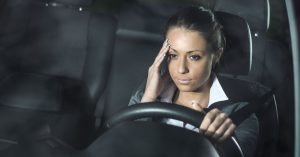
A new study shows college students are engaging in drowsy driving and do not consider it to be as dangerous as texting while driving and operating under the influence.
As a parent, you have probably talked to your college student about the risks of drunk driving and texting while driving on many occasions. What about drowsy driving? A new study reports college students are not taking this risk as seriously – even as drowsy driving causes an estimated 300,000 traffic crashes each year in the U.S.
The study was published in the February edition of the journal Sleep Health. Researchers conducted four focus groups involving 26 undergraduate students in 2016. Students were asked about their driving behaviors and perceptions about dangerous driving.
Most of the students considered themselves safe drivers, yet they viewed drowsy driving as less risky than operating under the influence of alcohol and distracted driving. Students actually said drowsy driving was “normal” and an “unavoidable part of their lives.” They admitted to drowsy driving in the past. Whether as a driver or passenger, many had actually been in some way involved in a drowsy driving car crash or near accident. In most cases, students were driving alone in the early morning or at night.
The Holiday Toy “Don’t Buy” List

Fidget spinners have been one of the most popular gifts of 2017, but the small pieces can fall out and cause a child to choke.
By now, the children in your life have probably sent you their holiday toy wish lists. But just as important is the holiday “don’t buy” list.
W.A.T.C.H. released nominees for its “10 Worst Toys of 2017” list in mid-November, leading with Hallmark’s “Ittys Bitty” Baby Stacking Toy. This toy was recalled by the Consumer Product Safety Commission (CPSC) in August. The fabric hats and bows on the Disney characters can detach and cause a young child to choke. This toy also has no safety warnings or age recommendations.
Toy 2: Tolo’s Tug Along Pony. This toy is marketed for children 12 months and older. It has a 19-inch cord, which is permitted for pull-along toys. But W.A.T.C.H. says this toy poses a strangulation hazard and does not carry any safety warnings.
Toy 3: The Wonder Woman Battle-Action Sword. This toy is recommended for children age 6 and up. Before you buy, note that the sword is large and sharp enough to cause facial or impact injuries. The packaging also gets a failing grade. It encourages children to “fight alongside men in a war to end all wars.”
Massachusetts Communities Fight Back Against Traffic Detour Apps

Local communities are restricting road use to stop the flood of drivers who use Waze and other traffic apps.
Commuting is a battle in Massachusetts, full of frustrations and hazards. But residents, communities and lawmakers continue to fight back to improve safety.
On Monday, the state House of Representatives considered a controversial bill proposing new fines for jaywalking and jaywalking while distracted (or as The Boston Globe writes, “Jay-texters”). Meanwhile, WBZ reports communities are closing off roads in response to traffic apps such as Waze and Google Maps.
Jaywalking Bill. On Beacon Hill, Rep. Colleen M. Garry, D-Dracut, has proposed Bill H.1834, which would allow cities and towns to impose stronger penalties against jaywalking. The current penalty is $1, which isn’t much of a deterrent. But this new bill proposes:
- Jaywalkers may be fined $25 for a first offense, $50 for a second offense and $100 for a third or subsequent offense.
- The proposal calls for new and increased fines for pedestrians who violate the jaywalking law and are using mobile devices or earphones. Using a mobile device will increase the fine to $50 for a first offense, $100 for a second offense and $200 for a third or subsequent offense.
Massachusetts is not the only state considering action. In New York, the State Assembly passed a law for New York City to study the problem. As of last month, the City of Honolulu began ticketing pedestrians who are texting or reading from a cell phone. The price? Up to $99 per violation.
While pedestrian texting bans are new, 47 states and Washington D.C. now have laws which ban texting while driving. Puerto Rico, Guam and the U.S. Virgin Islands also have bans. Massachusetts passed its texting while driving ban in 2010.
This is a controversial topic. We will be among those watching the State House this week.
Traffic Detour Apps. WBZ reported on Monday that drivers are continuing to make use of apps such as Waze and Google Maps, which help them find the shortest route (Note: Waze was actually acquired by Google in 2013). But regardless of the specific brand name, police departments say these apps are a safety issue because they change traffic flow and draw large amounts of traffic to residential roads.
Now cities, such as Medford, Cambridge, Brookline and Belmont have taken action, by closing off roads or posting no turn signs.
Here are a few notes for your commute:
- In October, Medford Police announced Bracket Street at Elm Street is residents only on weekdays from 7 a.m. to 9 a.m. and 4 p.m. to 6 p.m.
- Belmont has installed no right turn signs off Brighton Street.
- Brookline has restricted access to several roads off Clyde Street.
- In Cambridge, Fresh Pond Parkway is also closed to through traffic.
These are two stories for every commuter to follow. We will write more about both topics in the weeks and months to come.
About Breakstone, White & Gluck
The Boston car accident attorneys at Breakstone, White & Gluck have over 100 years combined experience representing pedestrians, cyclists, drivers and passengers who have been injured by negligent drivers. If you or a loved one has been injured, learn your rights for seeking compensation. After a car accident, you may incur medical expenses, have to take time off from work and no one can predict how long recovery will take. For these reasons, it is important to contact an experienced Boston car accident lawyer.
For a free legal consultation, contact our attorneys at 800-379-1244 or 617-723-7676 or use our contact form.
Massachusetts Lawmakers Consider Bill to Prevent Insurance Companies from Dog Breed Discrimination

Massachusetts lawmakers are considering a bill to prevent insurance companies from discriminating against homeowners who own certain dog breeds.
Massachusetts lawmakers are considering a bill to prevent insurance companies from discriminating against homeowners based on their dog’s breed.
Rep. Jack M. Lewis (D-Framingham) is the sponsor of H.554, which would ensure dog owners can buy insurance to provide compensation to anyone injured by their pet.
Under the proposed bill, insurance companies would not be allowed to refuse to offer homeowners insurance or renters insurance coverage based on the specific breed of an individual’s dog. The insurer would be prohibited from refusing to issue a policy, renewing a policy, canceling a policy or raising the premium based on the dog’s breed.
The bill provides an exception for a dog which has been designated a “dangerous dog,” by a local community.
At Breakstone, White & Gluck, our attorneys have represented victims of Massachusetts dog bite attacks for more than 30 years. Massachusetts has a strict law when it comes to dog bites. Under M.G.L. c.140 § 155, a dog owner or keeper is strictly liable for injuries inflicted by a dog. Their homeowners insurance policy typically provides compensation to the victim. With the exception of young children, victims have to show they were not teasing or tormenting a dog or trespassing.
Years ago, the cities of Boston, Lowell and Worcester banned certain breeds of dogs, such as pit bills, because they had a reputation for being dangerous. This practice became illegal in Massachusetts in 2012, with passage of St.2012, c.193. Here is a summary of the animal control law written by the Massachusetts Society for Prevention of Cruelty for Animals (MSPCA).
Yet certain insurance companies are still asking about dog breeds. At the State House this week, a representative from the Property and Casualty Insurers Association of America said dogs are the industry’s “single biggest loss.” He was testifying before the Joint Committee on Financial Services.
Meanwhile, the MSPCA supports the Massachusetts bill, saying breed-specific policies are a bad idea. The organization says a better solution is educating the public and dog owners on dog behaviors.
The MSPCA estimates 4.7 million dog bite injuries occur in the U.S. each year, with 800,000 victims requiring medical treatment.
At Breakstone, White & Gluck, we support full compensation for anyone who has been injured by a dog. Young children often suffer dog bite injuries. But others are also at risk. Over the years, our dog bite attorneys have represented clients of all ages who have been bitten suddenly and without warning – including cyclists riding bikes. We have represented clients in the Boston area and across Massachusetts. When a dog bites, medical care is critical – in the hours, days and months following an attack.
This medical care comes with other costs. Victims – or family members – may have to take time off from work to receive medical care and deal with the emotional pain and stress of a dog bite attack. Our attorneys have represented those injured by dogs as well as family members who witnessed the terrifying attack and suffered severe emotional distress as a result. It is a long journey back after a dog bite injury and it’s important for insurance companies to provide compensation.
Our Work for Dog Bite Victims
Read about our results for clients injured by dog bite attacks in Massachusetts.
About Breakstone, White & Gluck
With over 100 years combined experience, Breakstone, White & Gluck specializes in representing those who have been injured by the negligence and wrongdoing of others in Massachusetts. We are experts in handling dog bite and animal attack cases. If you have been injured, learn your rights. For a free legal consultation, contact us at 800-379-1244 or 617-723-7676 or use our contact form.
Pedestrian Deaths in Boston are Rising
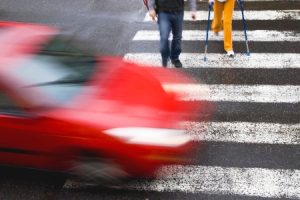 Pedestrian safety was the focus of several NBC Boston reports last night. One segment was called “Boston’s Crosswalk Crisis” and another was called “Cro$$walk Crisis: Private Funding for Public Ways.” They are worth viewing for anyone who lives or works in Boston. A few figures from the reports:
Pedestrian safety was the focus of several NBC Boston reports last night. One segment was called “Boston’s Crosswalk Crisis” and another was called “Cro$$walk Crisis: Private Funding for Public Ways.” They are worth viewing for anyone who lives or works in Boston. A few figures from the reports:
- Pedestrian deaths rose 15 percent in Boston in 2016.
- Nine pedestrians have died this year, up 30 percent from this time last year.
- In addition to these deaths, 384 pedestrians were hit and required medical attention during the first half of 2017.
The news station also reported that some Boston residents are taking charge and raising funds to build crosswalks. This is not cheap. In the South End, Tremont Street residents are trying to raise $25,000 for crosswalks at the intersection of Tremont and Union Park and Upton and Columbus and Rutland.
As pedestrian fatalities have risen, the City of Boston’s Vision Zero Task Force has been working to make the city safer for pedestrians and cyclists. The task force’s goal is similar to Vision Zero task forces in other major cities – to eliminate transportation deaths by 2030.
The rise in pedestrian deaths is discouraging, especially since the task force was recently successful in lowering default speed limits in Boston. Lower speeds mean fewer accidents because drivers have more time to respond.
The task force had to obtain Legislature approval to lower the city’s default speed limit from 30 mph to 25 mph. Now all cities in Massachusetts can opt-in and lower speed limits if they choose. A number of communities already have, including Cambridge, Somerville, Quincy and Milton.
Boston Pedestrian Accident Lawyers
At Breakstone, White & Gluck, our Boston pedestrian accident lawyers have over 30 years of representing those who have been injured and killed by negligence in Massachusetts. Our attorneys have represented numerous families who have lost loved ones in pedestrian accidents, even in the crosswalk where they should have been safe. In 2005, one of our clients was struck by an MBTA bus right in a crosswalk on Washington Street in the South End of Boston.
Drivers Have to Slow Down
Boston has some of the most congested roads in Massachusetts and many have been taken over by construction over the past few years. Drivers need to take even more care when traveling in the city and watch out for pedestrians and cyclists. Yet they often don’t and the roads tend to be more congested this time of year in Boston and Cambridge, as college students move in and elementary schools re-open.
Walk down any city street and chances are, you will see someone sitting in a car at a traffic light or stopped in traffic, ear to cell phone. In-vehicle devices which allow hands-free talking or map out directions are not always safer, either. When it comes to intersections or at parking garages, shopping plazas or schools, drivers need to give the road their full attention – and slow down.
Contact Breakstone, White & Gluck for a Free Legal Consultation
If you or a loved one has been injured in a Boston pedestrian accident, you may have the right to seek compensation from the responsible driver. Contact us for a free legal consultation at 800-379-1244 or 617-723-7676 or use our contact form.
You can also read about Breakstone, White & Gluck’s recent settlements and awards for clients in pedestrian cases.
Technology Must Make Trucks Smarter Too
 Large trucks are a stress for many Massachusetts drivers, especially on busy routes like the Mass Pike. The most challenging situations are when a truck comes up behind you or when one tries to pass you.
Large trucks are a stress for many Massachusetts drivers, especially on busy routes like the Mass Pike. The most challenging situations are when a truck comes up behind you or when one tries to pass you.
There were nearly 415,000 truck crashes in the U.S. in 2015, injuring more than 116,000 people and killing more than 4,060, according to the Federal Motor Carrier Safety Administration.
As phones, cars, drones and apps all make our world smarter and faster, the trucking industry must get smarter too. Let’s be clear: We are not advocating for self-driving trucks, but tools that increase video monitoring, expand the driver’s visibility and provide error warnings are all going to help improve safety.
A new study reports on four advanced safety technologies for trucks. The study, from the AAA Foundation for Traffic Safety, covers:
- Video-Based Onboard Safety Monitoring Systems
- Lane Departure Warning Systems
- Automatic Emergency Braking Systems
- Air Disc Brakes
AAA says these technologies could save up to 63,000 lives per year. For this study, AAA reported on a number of industry studies.
- Video-Based Onboard Safety Monitoring Systems could deploy two cameras. One would record the road ahead and the other would follow the driver’s behavior and performance inside the cab. To provide more thorough monitoring, the study said rear cameras could be added, one to capture the center line of vision and one for each side. According to the data, video monitoring systems may have prevented 38 to 52 percent of large truck safety critical events, 20 percent of large truck fatal crashes and 36 percent of large-truck injury crashes.
- Lane Departure Warning Systems monitor a truck’s position on the road and provide the driver with warning if the truck starts to leave the lane. AAA reviewed 13 studies which found lane departure warning systems were 13 to 53 percent effective in preventing roadway departure, sideswipe, opposite sideswipe and head-on truck crashes.
- Automatic Emergency Braking Systems are designed to prevent trucks from crashing into other cars from behind. The in-vehicle system uses a sensor to look ahead of the truck, then alerts the driver if there is a potential for collision. The driver can use this information to reduce speed or make another driving decision to prevent a truck crash. If the driver takes no action and the system detects a crash is coming, it will take control of the truck’s brakes. AAA reviewed five studies that found automatic emergency braking systems prevent rear-end collisions by 16 to 52 percent.
- Air Disc Brakes can reduce a truck’s stopping distance by up to 30 percent and reduce large truck rear-end collisions by up to 43 percent, according to the reviewed studies. This technology was not widely used in the U.S. for years.
Lower Technology Safety Measures for Trucks
Not every safety measure has to be high tech. Many U.S. cities are considering lower tech truck safety measures. In 2014, Boston approved the nation’s first truck side guard ordinance, requiring city-contracted trucks to use side guards and convex mirrors. Other cities have followed including New York City and Chicago. Meanwhile, the City of Cambridge has equipped its own city trucks with side guards and MassBike, the state’s largest advocacy organization for cyclists, had proposed legislation for a statewide truck side guard law in Massachusetts. But no action has been taken.
Truck side guards block the area below the truck’s cargo, between the wheels, so cyclists and pedestrians cannot get towed under. Read more on truck accidents and injuries to cyclists.
About Breakstone, White & Gluck
If you have been injured, contact the Boston truck crash lawyers of Breakstone, White & Gluck for a free legal consultation. With more than 100 years combined experience, our attorneys have investigated complex truck accidents which have injured drivers, motorcyclists and pedestrians. We have negotiated multi-million dollar awards for our clients. Contact us at 800-379-1244 or 617-723-7676 or use our contact form.
6 Tips for Boston and Cambridge College Students Who Are Moving Into Off-Campus Housing

Many college students heading to Boston will be living in off-campus housing. The attorneys of Breakstone, White & Gluck share safety tips and resources.
College students are just days away from starting the Fall semester. In Boston and Cambridge, we urge students to make time for an extra lesson on safe housing. Make sure you understand your rights as a tenant and your landlord’s responsibility to maintain a safe property.
Boston and Cambridge have more than 40 colleges and universities. Because of a shortage in dorm space, many students end up in off-campus housing. Unfortunately, some find themselves dealing with unresponsive landlords who want to collect rent, without doing the work to maintain a property. If you are in this situation, it is important to remember that if a landlord is charging you rent, you have the right to a safe and sanitary apartment.
When a landlord is unresponsive and negligent, it can lead to many problems. It can result in sanitary issues, such as mold, rodents or a bug infestations. It can also lead to broken equipment (for instance, a broken smoke alarm, which needs to be addressed right away).
Porch collapses and fires are two of the most common and serious types of premises liability accidents. As a result of landlord negligence, over the past 10 years, five college students have died in off-campus fires in Massachusetts, according to the state’s website.
Protect Yourself From ATM Skimming

Take the right steps to protect yourself from ATM skimming. Many Massachusetts consumers have been targeted.
You insert your ATM card and out comes cash for the week. Simple, right? Next time, pay closer attention. Many Massachusetts consumers are being scammed – or skimmed – for their financial information, at a tremendous price.
ATMs – automated teller machines – are a convenient way to get cash or make deposits. Unlike banks, they are always open and accessible.
But they are vulnerable to ATM skimming, when thieves install hidden electronic skimming devices on an ATM to record a consumer’s financial information. Massachusetts has seen several recent cases.
Just this week, Cambridge Police issued an alert, seeking a man who fraudulently ran up $800 on a Cambridge woman’s ATM card. Police say he may have skimmed her financial information at an ATM in Boston. ATM skimming rarely claims just one victim, though. In June, the Lowell Sun reported on two men who pled guilty after ringing up over $100,000 on 100 credit card numbers they skimmed in the Boston area. Other stories have also been reported in Framingham, Burlington and on the South Shore
The problem is skimming devices are often small and look like part of an ATM, so consumers may not notice them, even if they are looking.
Use caution at the ATM machine. We suggest the following tips to help you protect your financial information:
- Examine the card slot before inserting your card. Look for anything loose, crooked, damaged or scratched. If you observe anything suspicious, do not swipe your card. We suggest you read this article, “How to Spot and Avoid Credit Card Skimmers,” by PC Magazine.
- Thieves also need your PIN code. They often record your information through hidden cameras. When entering your PIN, cover the keypad with your other hand to prevent your PIN from being recorded.
- Walk away from an ATM if you notice someone watching you or you sense something is wrong with the machine.
- Avoid ATM machines with minimal supervision. For instance, try not to use stand-alone ATM machines in convenience stores, bars or parking lots.
- Also beware of skimming devices when paying at gas stations.
- If an ATM does not return your card when a transaction is over, report the incident immediately to your financial institution.
- Never give out your bank account number or the PIN for your ATM card. If someone calls you and asks for your information, hang up and report the call to your local police department.
- Monitor your account for unauthorized transactions and report them to your financial institution immediately. Most banks offer online access, which allows you to check your statements easily.
- Set a daily cash withdrawal limit. Ask your bank and credit card company to notify you of transactions—these can be sent right to your cell phone.
- Check in on senior citizens in your family or neighbors. Tell them you are concerned about ATM skimming. Remind them to check their bank accounts, and also, to never give their financial information out to callers over the telephone.
- The most important step? Contact police and your bank if you suspect anything suspicious. The sooner police and your financial institution can start investigating, the better for everyone using the ATM machine.
If you do find yourself a victim, remember you have rights. Under Massachusetts law, consumers are only liable for up to $50 if they are the victim of credit card or debit card fraud. But you must report the fraud immediately to avoid any financial losses. Read this article to learn more.



